

Congolese rebel leader, when asked whether he intends to take over the entire region
 "As you crawl through the tiny hole, using your arms and fingers to scratch, there's not enough space to dig properly and you get badly grazed all over. And then, when you do finally come back out with the cassiterite, the soldiers are waiting to grab it at gunpoint. Which means you have nothing to buy food with. So we're always hungry."
"As you crawl through the tiny hole, using your arms and fingers to scratch, there's not enough space to dig properly and you get badly grazed all over. And then, when you do finally come back out with the cassiterite, the soldiers are waiting to grab it at gunpoint. Which means you have nothing to buy food with. So we're always hungry."
That's how Muhanga Kawaya, a miner in the remote northeastern province of North Kivu in the Democratic Republic of the Congo (DRC), described his job to reporter Jonathan Miller of Britain's Channel 4 last year. Cassiterite, or tin oxide, is the most important source of the metallic element tin, and Congo is home to fully one-third of the world's reserves. Some cassiterite miners work on sites operated directly by the country's military or other armed groups. Working in the same area are "artisanal" miners who are theoretically independent, like prospectors in America's Old West. But the cassiterite they extract is heavily taxed by the soldiers -- when it's not just stolen outright.
With a land area as vast as that of Texas, California, Montana, New Mexico, Arizona, Nevada and Colorado combined, the DRC has only 300 miles of paved roads. To reach one of the many cassiterite mines in the virtually roadless northeast, 1,000 miles from the national capital Kinshasa, Miller's team followed a 40-mile footpath that, he reported, was as "busy as a motorway. Four thousand porters ply this route carrying sacks of rock heavier than they are. Each of their 50 kilogram packs of cassiterite is worth $400 on the world market. Government soldiers often force porters at gunpoint to carry the rocks free of charge; if they're lucky, though, they can make up to $5 a day." (Watch Channel 4's gripping, award-winning report here.)
 So, why should we care? Because without cassiterite rock and the other ores mined in the Congo we would be unable to manufacture the linchpins of our global "weightless economy" -- computers and telephones.
So, why should we care? Because without cassiterite rock and the other ores mined in the Congo we would be unable to manufacture the linchpins of our global "weightless economy" -- computers and telephones.













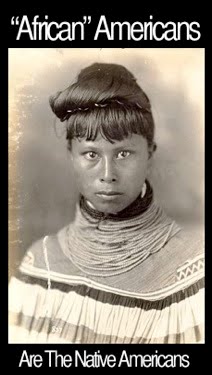




























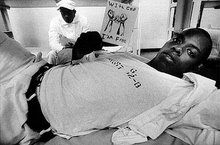
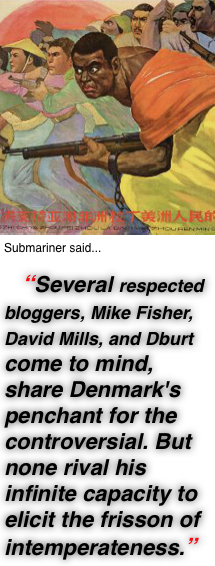




















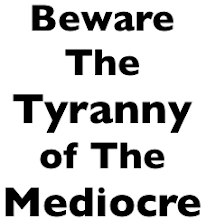












































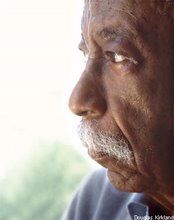


5 comments:
Prime example of a country under soulful, charismatic Black leadership with no non-Black "technicians" to get in the way?
LOL.
Ahh.
I feel you Byrd. That certainly is one way to look at it.
Fair enough ... fair enough.
Just as one could measure the value of white leadership by assessing the twin bankruptcies of the American treasury and the American spirit under the stewardship of Caucasian buffoons in the white house and Caucasian Jew flunkies in Congress.
I imagine the poisoning of the planet and the de facto collective suicide of global warming created by industrial "genius" of profit driven Europeans - could cost you mechanics and engineers a few points in leadership ability as well.
I mean ... is it really an "advancement" to genetically modify the food supply of the entire planet?
The chutzpah.
^ Good points as well. Although without Zionist interference, the US would be more like the EU and far more ecologically-conscious.
But again, that still goes back to poor American leadership in allowing the Zionists such control.
Perhaps the Native Americans had it better. More sustainable lifestyles with more ecological responsibility and less misery from incompetence. Then again, they also failed in repelling their White conquerors...
The EU?
Who sold their souls to the devil long before the American fools did?
You'll have to do better than that Byrdeye.
While we can blame those fighting this war- lets not forget the engines that are fueling this war- The international mining companies, working with rebels, there fore escaping taxation or developmental irresponsibilities that mining investors are required to perform.
This is not a Congolese civil war- its more than that- and unless we begin to address that, it will not end anytime soon.
please inform yourselves on "friends of Clinton and the DR congo"
Post a Comment